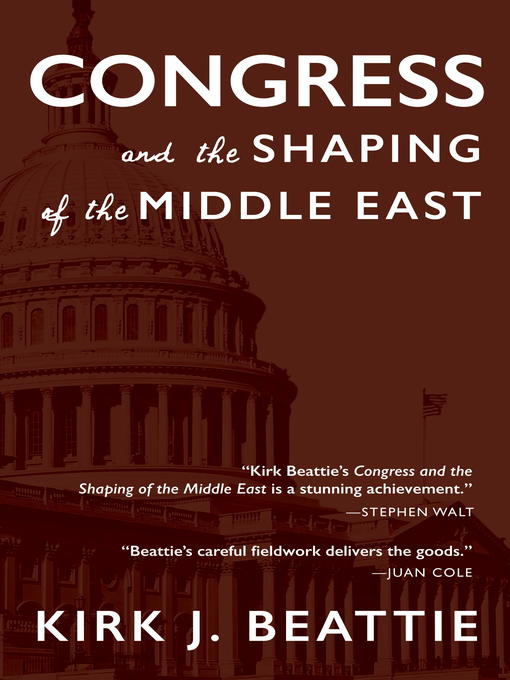How does one explain US Middle East policy? When Stephen Walt and John Mearsheimer wrote their bestselling book The Israel Lobby, they attributed our pro-Israel policy to the power of the lobby itself. Others have criticized this approach as overly simplistic. Longtime Middle East watcher Professor Kirk Beattie provides a profound assessment of Congress’s role by examining the vetting of congressional candidates, campaign financing, congressional staffing, bipartisan alliances within the Senate and the House, and the agenda-driven allocation of foreign aid and policymaking. He addresses the many internal and external pressures that impact such processes. His findings, based on roughly two hundred interviews with congressional staffers, lobbyists, members of Congress, and foreign embassy officials across years of research, untangle the issue to show us how Congress really works.
- Available now
- New eBook additions
- New kids additions
- New teen additions
- Most popular
- Try something different
- Manga to Read (or Re-Read)
- Elections, Coups, & Sociopolitical Upheaval
- Celebrating Indigenous Peoples
- Manga
- See all
- Available now
- New audiobook additions
- New kids additions
- New teen additions
- Most popular
- Try something different
- See all

